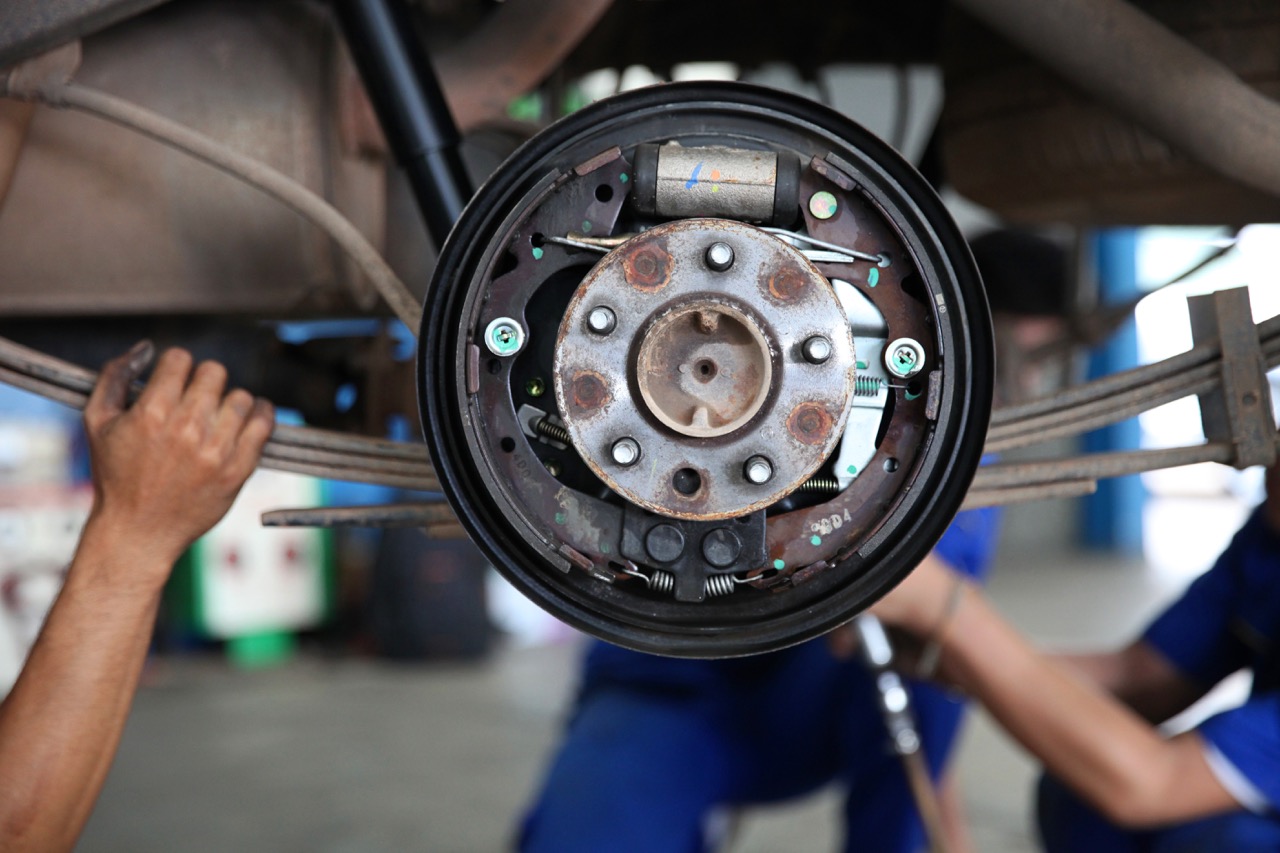
If you’re like most drivers, you know the basics about your car’s brakes—but are you aware of the different types of brake systems available? Disc brakes, drum brakes, and air brakes are the three main types, and they each have their own unique benefits and drawbacks.
Disc Brakes
The most common type of brake system, disc brakes work by using calipers to press brake pads against a spinning disc, or rotor. The friction between the pads and the rotor slows down the wheel, stopping the car.
- Best For: Most passenger cars, SUVs, and light trucks.
- Pros: More effective than drum brakes in wet weather and at high speeds.
- Cons: More expensive to repair and replace than drum brakes.
- Maintenance: Disc brake pads should be inspected for wear every 10,000 miles or so, and replaced when they get too thin. Rotors can last up to 50,000 miles before they need to be replaced.
Drum Brakes
Drum brakes work by using brake shoes that press against the inside of a spinning brake drum. This friction that is created between these slows the wheel and brings the car to a stop.
- Best For: Some older cars, some light trucks, and some commercial vehicles.
- Pros: More affordable to repair and replace than disc brakes.
- Cons: Not as effective as disc brakes in wet weather or at high speeds.
- Maintenance: Drum brake shoes should always be replaced when they get too thin. To stay on top of this, they should be inspected for wear every 20,000 miles. Brake drums themselves usually last up to 60,000 miles before needing a replacement.
Air Brakes
Air brakes are a type of brake system that uses compressed air to slow down and stop the vehicle. They come in both disc and drum brake varieties.
- Best For: Commercial vehicles, such as buses and trucks.
- Pros: More effective than disc or drum brakes in high-heat situations and high-speed emergencies.
- Cons: Can be less reliable than other types of brake systems, and require more frequent maintenance.
- Maintenance: Air brake systems should be inspected for leaks every 10,000 miles or so. The air compressor and other parts of the system should be replaced every 50,000 miles.
Addison Car Care — The Best in Brake Repair
No matter what type of brake system your car has, it’s important to keep up with regular brake maintenance and repairs. That’s where we come in!
At Addison Car Care in Twin Falls, ID, our experienced technicians can help you keep your brakes in top condition. We offer a wide range of brake services, from brake pad replacement to brake repairs, replacements, and rotor resurfacing. Our other services include:
- Muffler and exhaust installation and repair
- Catalytic converter services
- Oil changes
- Tune-ups
- Engine repair
- Emissions testing
Trust your car to us, and we’ll make sure your brakes are in tip-top shape so you can hit the road with confidence!
Related Posts
Key Takeaways On average, passenger vehicle tires last 40,000 to 60,000 miles, depending on type, driving habits, and maintenance. Replace tires when tread depth reaches 2/32”, if damaged, or older than 10 years. Regular rotation, alignment, and proper inflation extend tire life. Aggressive driving, poor roads, and harsh weather shorten tire lifespan. Take advantage [...]
When you think about car maintenance, you probably focus on oil changes, tire rotations, and maybe even brake pad replacement. But what about your brake fluid? If you’ve ever wondered, “What does brake fluid do?” or “Why is brake fluid important?”, you’re not alone. Brake fluid might not be the most talked-about part of [...]
Is that high-pitched squeal from your brakes driving you—and everyone else—crazy? Don’t ignore it. Squeaky brakes aren’t just annoying, they’re your car’s way of saying something needs attention. Whether you're cruising through Salt Lake City or winding up Idaho’s mountain passes, here’s what’s likely going on, how you can fix it, and when it [...]





